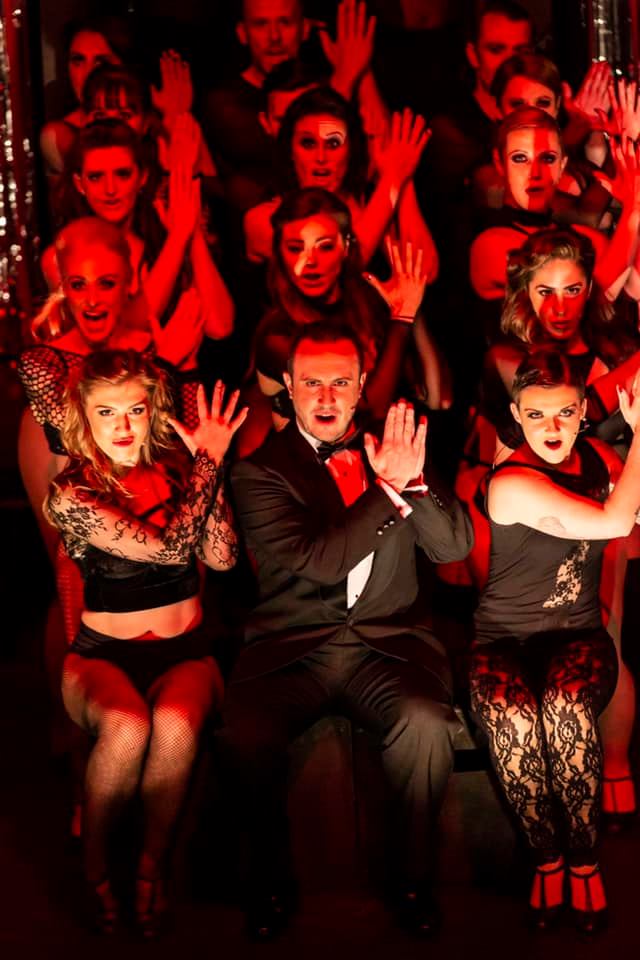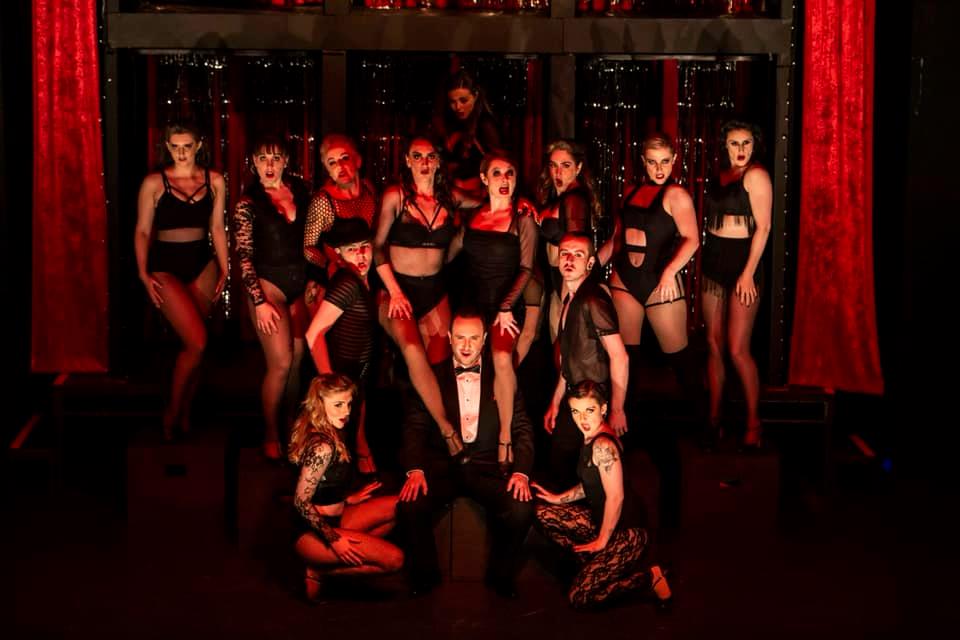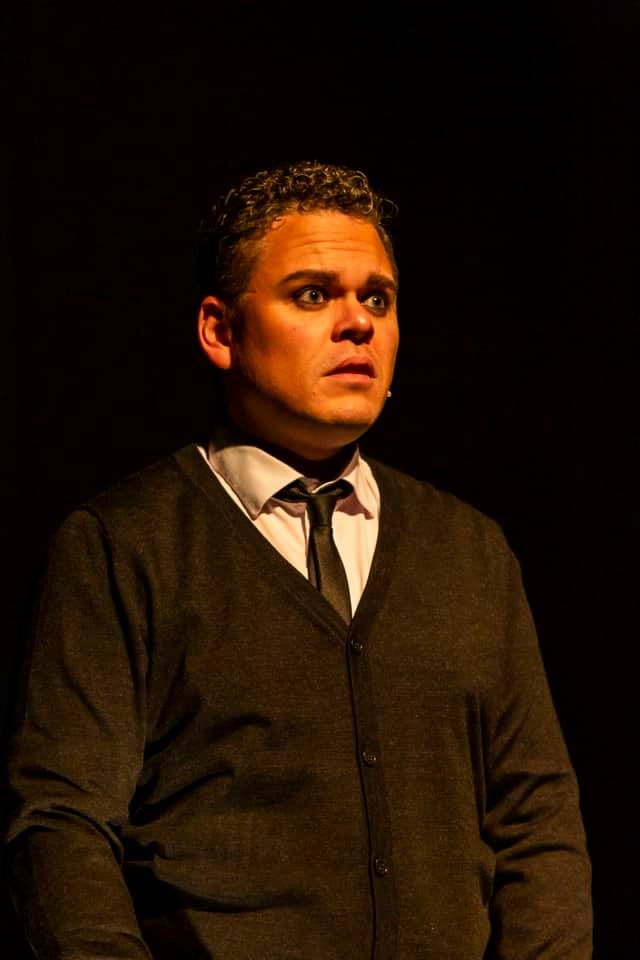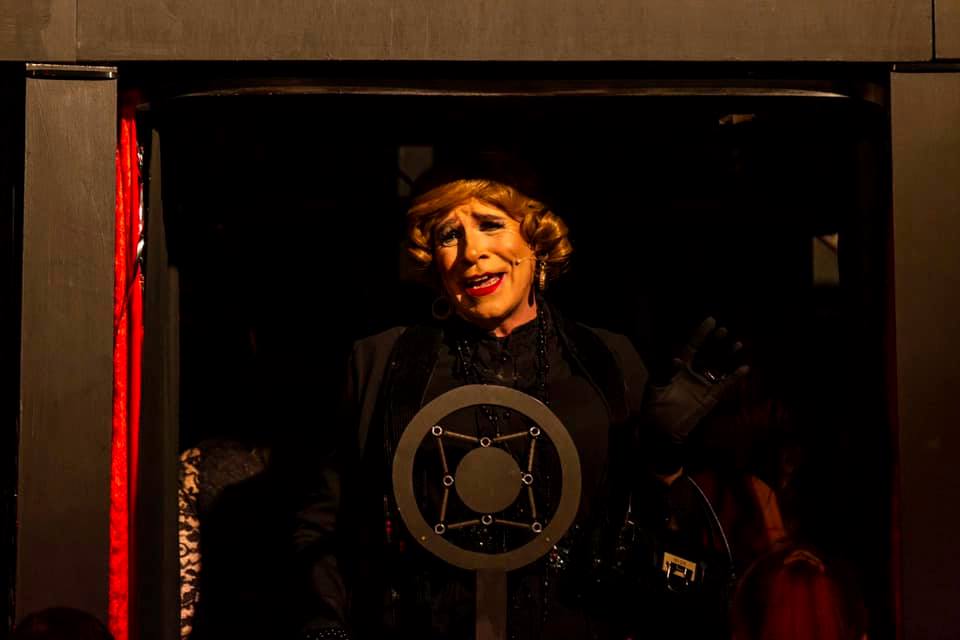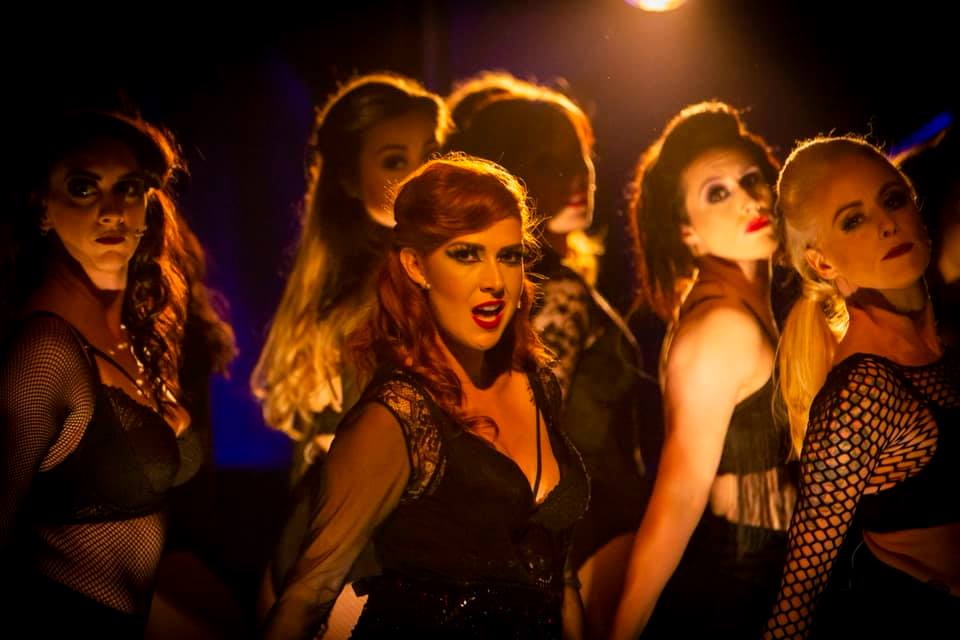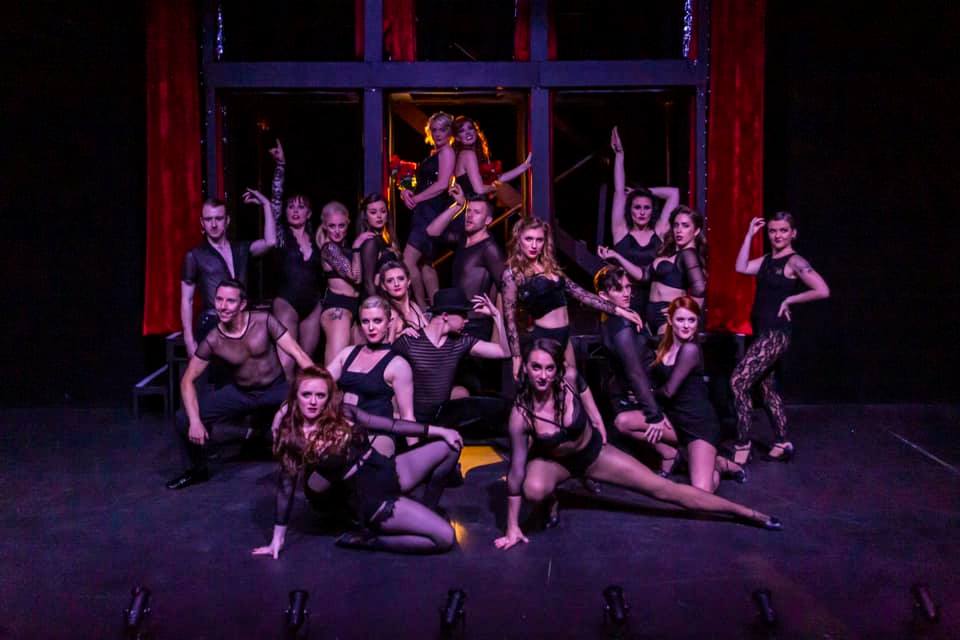2019 – Chicago
Websters Theatre, Glasgow
Broadway’s longest-running American musical, Chicago is a dazzling and satirical look at fame, justice, and the media machine. Set in 1920s Chicago and based on real-life murders and trials, Chicago follows Roxie Hart, a wannabe vaudevillian star who murders her lover and is arrested, despite her attempts to convince her pushover husband, Amos, to lie for her. In the Cook County Jail, Roxie meets her hero, the famed double-murderess and nightclub performer Velma Kelly. When both acquire the same lawyer, the greedy and lustful superstar, Billy Flynn, tensions come to a head as they vie for the spotlight– though instead of onstage, they’re mugging for the flashbulb of the newspaper reporters. With catchy, sexy music and timeless lyrics by John Kander and Fred Ebb, and a funny, intelligent, and utterly engaging book by Kander and Bob Fosse, Chicago is a musical spectacular that is as addictive as gossip rags and as unforgettable as any trial of the century.
Act I
Velma Kelly is a vaudevillian who welcomes the audience to tonight’s show (“All That Jazz”). Interplayed with the opening number, the scene cuts to February 14, 1928, in the bedroom of chorus girl Roxie Hart, where she murders Fred Casely as he attempts to break off an affair with her.
Roxie convinces her husband Amos that the victim was a burglar, and Amos agrees to take the blame. Roxie expresses her appreciation of her husband’s willingness to do anything for her (“Funny Honey”). However, when the police mention the deceased’s name, Amos belatedly realizes that Roxie has lied to him. With both Roxie and Amos furious at each other for the other’s betrayal, Roxie confesses and is arrested. She is sent to the women’s block in the Cook County Jail, where several women accused of killing their lovers are held (“Cell Block Tango”); among the inmates is Velma Kelly, revealing herself to have been involved in the death of her husband and sister after she caught them having sex, though she denies committing the act on account of blacking out from the sight. The block is presided over by Matron “Mama” Morton, whose system of taking bribes (“When You’re Good to Mama”) perfectly suits her clientele. She has helped Velma become the media’s top murderer-of-the-week and is acting as a booking agent for Velma’s big return to vaudeville.
Velma is not happy to see Roxie, who is stealing not only her limelight but also her lawyer, Billy Flynn. Roxie convinces Amos to pay for Billy Flynn to be her lawyer (“A Tap Dance”), though Amos lacks the funds. Eagerly awaited by his all-woman clientele, Billy sings his anthem, complete with a chorus of fan dancers (“All I Care About”). Billy takes Roxie’s case before realizing Amos doesn’t have the money; to make up the difference, he turns the case into a media circus and rearranges her story for consumption by sympathetic tabloid columnist Mary Sunshine (“A Little Bit of Good”), hoping to sell proceeds in an auction. Roxie’s press conference turns into a ventriloquist act, with Billy dictating a new version of the truth (“We Both Reached for the Gun”) to the reporters while Roxie mouths the words.
Roxie becomes the most popular celebrity in Chicago, as she boastfully proclaims while planning for her future career in vaudeville (“Roxie”). As Roxie’s fame grows, Velma’s notoriety subsides, and in an act of desperation she tries to talk Roxie into recreating the sister act (“I Can’t Do It Alone”). Roxie turns her down, only to find her own headlines replaced by the latest sordid crime of passion (“I Can’t Do It Alone (Reprise)”). Separately, Roxie and Velma realize there is no one they can count on but themselves (“My Own Best Friend”), and Roxie decides that being pregnant in prison would put her back on the front page.
Act II
Velma returns to introduce the opening act, resentful of Roxie’s manipulation of the system (“I Know a Girl”) and ability to seduce a doctor into saying Roxie is pregnant; as Roxie emerges, she sings gleefully of the future of her unborn (nonexistent) child (“Me and My Baby”). Amos proudly claims paternity, but still, nobody notices him, and Billy exposes holes in Roxie’s story by noting that she and Amos had not had sex in four months, meaning if she were pregnant, the child was not Amos’s, in hopes that Amos will divorce her and look like a villain, which Amos almost does (“Mr. Cellophane”). Velma tries to show Billy all the tricks she has planned for her trial (“When Velma Takes The Stand”), which Roxie treats skeptically. Roxie, upset with being treated like a “common criminal” and considering herself a celebrity, has a heated argument with Billy and fires him; Billy warns her that her kind of celebrity is fleetingand that she would be just as famous hanging from a noose. At that moment, Roxie witnesses one of her fellow inmates, a Hungarian woman who insisted on her innocence but could not speak English and whose public lawyer refused to defend her, become the first woman to be executed in Chicago in decades (“Hungarian Rope Trick”).
The trial date arrives, and the now freshly terrified Roxie runs back to Billy, who calms Roxie by suggesting she will be fine so long as she makes a show of the trial (“Razzle Dazzle”). Billy uses Amos as a pawn, turning around and insisting that Amos is actually the father of Roxie’s child. As Roxie recounts Billy’s carefully crafted false narrative of the night of Fred’s murder (with Fred re-appearing on stage in flashback), she steals all of Velma’s schtick, down to the rhinestone garter, to the dismay of Mama and Velma (“Class”). As promised, Billy gets Roxie acquitted, but just as the verdict is announced, some even more sensational crime pulls the press away, and Roxie’s fleeting celebrity life is over. Billy leaves, done with the case, admitting that he only did it for the money. Amos tries to get Roxie to come home and forget the ordeal, but she is more concerned with the end of her brief run of fame and admits she isn’t pregnant, at which point a fed up Amos leaves her.
The final scene cuts to a Chicago vaudeville theater, where Roxie and Velma (acquitted off-stage) are performing a new act in which they sing bittersweetly about modern life (“Nowadays”). The former Mary Sunshine, revealed during the trial actually to be a man in drag, takes his natural male form as a pushy vaudeville promoter, shaping Roxie and Velma’s dance (“Hot Honey Rag”) to make it as sexy as possible. The show ends with a brief finale as Roxie and Velma thank their audience (“Finale”).
Director: Blair Ledgerwood-Cruikshank
Musical Director – Sean Stirling
Choreographer – Greg Robertson

Act One
- Overture – Orchestra
- All That Jazz – Velma Kelly and Company
- Funny Honey – Roxie Hart
- Cell Block Tango– Velma, Annie, Liz, June, *Hunyak, Mona
- When You’re Good to Mama – Matron “Mama” Morton
- All I Care About – Billy Flynn and the Girls
- A Little Bit of Good – Mary Sunshine
- We Both Reached for the Gun – Billy, Roxie, Mary and the Reporters
- Roxie – Roxie and the Boys
- I Can’t Do It Alone – Velma
- I Can’t Do It Alone (Reprise) – Velma
- Chicago After Midnight – Orchestra
- My Own Best Friend – Roxie and Velma
- Finale Act I: All That Jazz (Reprise) – Velma
Act Two
- Entr’acte – Orchestra
- I Know a Girl – Velma
- Me and My Baby – Roxie and Company
- Mr. Cellophane – Amos Hart
- When Velma Takes the Stand – Velma and the Boys
- Razzle Dazzle – Billy and Company
- Class – Velma and Mama Morton
- Nowadays/Hot Honey Rag – Velma and Roxie
- Finale Act II: All That Jazz (Reprise) – Company

